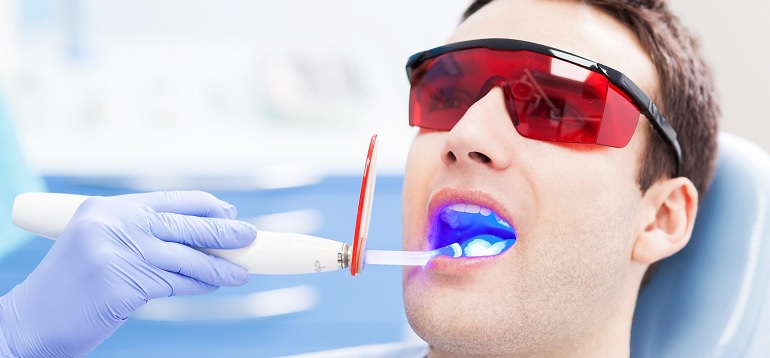Laser-Assisted Root Canal Therapy
Root canal treatment:
A root canal treatment is a simple tooth cleaning procedure that removes all the infected dental tissues from the tooth root and fills it with an appropriate filling material and is sealed with a cap or crown. It is carried out under local anaesthesia, so you should not fear any pain. The procedure is done to restore and save a tooth that is decayed or infected. The procedure can be done in a single sitting or multiple sittings depending upon the case.
Traditional root canal therapy:
Conventional root canal therapy involves removal of infected tissue from the tooth, cleaning it using disinfecting agents like sodium hypochlorite, chlorhexidine etc, refilling it with suitable material and sealing it with an appropriate cement. The general way is this procedure is done by making an opening to reach the inside of the tooth. The inside of the tooth, the pulp, is then cleaned using hand tools. After the final filling, the tooth is ready to be restored with a cap/crown.
Drawbacks of Traditional root canal therapy:
- More invasive
- Time-consuming
- More painful than laser-assisted root canal therapy
- More chances of re-infection
- Less successful procedure compared to laser-assisted root canal treatment.
Why Laser?
For centuries drills and other dental hand instruments have been relied on to remove the infected pulp from a decayed tooth. Laser dentistry has completely changed the way dentists approach any dental treatment.
Advantages of laser root canal therapy:
- Laser-assisted root canal therapy is less aggressive and hence makes it a painless procedure. It also reduces post-op complications like swelling, pain, and bleeding.
- Less time-consuming procedure.
- It also limits the use of local anaesthesia.
- Complete disinfection of root canals can be achieved with the help of lasers, thus confirming a higher success rate.
- Laser root canal treatment is more precise, thus avoiding unnecessary drilling of the tooth and helps in the preservation of sound tooth structure.
- As it is less invasive, faster healing is quite evident.
- There are fewer chances of re-infection and contamination with the use of lasers.
How does it work?
Laser dentistry is combined with traditional root canal techniques to remove the infected pulp and terminate the bacteria, which causes frequent re-infection more effectively. A laser drill is used to access the inner pulp chamber. A soft-tissue laser is used to first sterilize the structures of the tooth, as well as areas that may be difficult to reach with regular therapy. Less friction is involved in the procedure, which significantly reduces pain and discomfort.
Are lasers safe?
Some people worry that a dentist could slip up and the dental laser would cut their tooth. Laser treatments are performed by dentists who are well trained and experienced in conducting the procedure. The laser tool is as intricate as handling a drill itself, but yet different expertise in their ways.
Cost of laser-assisted root canal therapy:
It can start around 5000 – 15000 INR for a single tooth treatment and may vary according to individual cases, depends of the level of decay , the stage of infection and how many canals are their inside the tooth.
We specialise in laser root canal treatment which are less painful and more successful than conventional RCT. we usually can finish the root canals in a single visit of 45 mins to 90 mins. You can book an appointment right away and get your teeth checked and treated in the most convenient and comfortable options with us.


